Previous ECNP-PsychX talks
7 October 2024, 16.30 CEST
Childhood trauma: between neurobiological development and environmental impact
Soumaya Bourgou, Tunisia
 Psychological trauma can significantly impact individuals, particularly when experienced during critical developmental stages. The resulting repercussions depend on various personal factors. However, it is essential to acknowledge the influence of the environment and family history. Adopting this holistic perspective can provide a more nuanced understanding of the clinical presentation of patients with trauma.
Psychological trauma can significantly impact individuals, particularly when experienced during critical developmental stages. The resulting repercussions depend on various personal factors. However, it is essential to acknowledge the influence of the environment and family history. Adopting this holistic perspective can provide a more nuanced understanding of the clinical presentation of patients with trauma.
Soumaya is an associate professor of child psychiatry at the faculty of medicine of Tunis, Tunisia. She is trained in several trauma-focused psychotherapies. She served as treasurer of the Tunisian society of child and adolescent psychiatry. She is among the founding members of the EMDR Tunisia. She is currently secretary general of EMDR Tunisia and is a member of the national college of psychiatry and child psychiatry.
She founded the first specialised unit in Tunisia dedicated to assessing and providing care for person who have undergone traumatic events.
Her areas of expertise include violence against children, early childhood trauma, post-traumatic stress disorder and adverse childhood events.
2 September 2024
Four myths that hinder belief research (and how to counter them)
Neil Van Leeuwen, USA
 A few background assumptions about beliefs (we might call them myths) have caused crosstalk and confusion in the literature on belief. Here I address and correct four such myths: (i) that representationalism about belief requires "sentences in a belief box;" (ii) that the words "believe" and "belief" designate a single natural kind; (iii) that philosophers and cognitive scientists use the words "believe" and "belief" in the same way as lay people; and (iv) that "beliefs" must always have determinate propositional content. Recognising the falsity of (i) - (iv) clarifies discussion of belief and opens up new avenues for empirical and theoretical research.
A few background assumptions about beliefs (we might call them myths) have caused crosstalk and confusion in the literature on belief. Here I address and correct four such myths: (i) that representationalism about belief requires "sentences in a belief box;" (ii) that the words "believe" and "belief" designate a single natural kind; (iii) that philosophers and cognitive scientists use the words "believe" and "belief" in the same way as lay people; and (iv) that "beliefs" must always have determinate propositional content. Recognising the falsity of (i) - (iv) clarifies discussion of belief and opens up new avenues for empirical and theoretical research.
Neil Van Leeuwen will be joining the faculty of Florida State University in the fall as professor of philosophy. He is a philosopher of mind and cognitive scientist whose research touches on belief and imagination. He is the author of Religion as make-believe: A theory of belief, imagination, and group identity, which Harvard University Press published in 2023. His work has been discussed in The New York Times, The Atlantic, and The New Yorker, among other venues.
1 July 2024
Less is more – a differentiated approach to antipsychotic medication in Soteria
Martin Voss, Germany
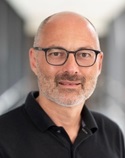 Soteria (ancient Greek: healing, welfare, preservation, rescue) refers to an inpatient treatment approach for accompanying people in psychotic crises, in which so-called "milieu therapy" and close personal support ("being with") are at the center of the treatment. Because of its calming, relaxing and setting, Soteria can help to minimize doses of antipsychotic medication which in turn improves adherence and long term outcomes in first episode schizophrenia. The lecture provides an overview of the origin and development of the Soteria idea and uses the example of the Soteria Berlin at Charité University Hospital/St. Hedwig Hospital (Berlin, Germany) to show how such a concept can be established in the hospital and become part of standard psychiatric care.
Soteria (ancient Greek: healing, welfare, preservation, rescue) refers to an inpatient treatment approach for accompanying people in psychotic crises, in which so-called "milieu therapy" and close personal support ("being with") are at the center of the treatment. Because of its calming, relaxing and setting, Soteria can help to minimize doses of antipsychotic medication which in turn improves adherence and long term outcomes in first episode schizophrenia. The lecture provides an overview of the origin and development of the Soteria idea and uses the example of the Soteria Berlin at Charité University Hospital/St. Hedwig Hospital (Berlin, Germany) to show how such a concept can be established in the hospital and become part of standard psychiatric care.
Having studied medicine and philosophy in Aachen and Berlin; Martin's initial training in neurology was at Charité Berlin. A postdoctoral researcher at the institute of neurology, UCL, London, UK from 2003-2005. Training in psychiatry from 2006; he obtained the role of consultant psychiatrist at the department of psychiatry and psychotherapy, Charité University Medicine and St. Hedwig Hospital in Berlin, Germany. Martin Voss is the founder of Soteria Berlin (2013) where his roles span: clinical supervisor, psychotherapist (psychodynamic psychotherapy), Head of the research division ''Psychotic Disorders“. He is a lecturer in psychiatry (Charité Medical School) and an internationally recognized researcher (main research Interest: self-disorders in schizophrenia, sense of self-agency, embodiment, effects of architecture and design on mental disorders and well-being).
3 June 2024
Democratising normative modeling for neuroimaging data
Sophia Frangou, USA
 In the last two decades, neuroimaging techniques have become essential tools for the study of the human brain. However, there is currently a lack of reference standards to accurately quantify individual differences in neuroimaging metrics across the human lifespan. The presentation will introduce a major advance in addressing aforementioned knowledge gaps related to brain morphometry. CentileBrain is web platform that enables the measurement of brain deviations using an international reference (>37,000 study participants aged 3-90 years, from more than 80 research sites).
In the last two decades, neuroimaging techniques have become essential tools for the study of the human brain. However, there is currently a lack of reference standards to accurately quantify individual differences in neuroimaging metrics across the human lifespan. The presentation will introduce a major advance in addressing aforementioned knowledge gaps related to brain morphometry. CentileBrain is web platform that enables the measurement of brain deviations using an international reference (>37,000 study participants aged 3-90 years, from more than 80 research sites).
Dr. Sophia Frangou serves as professor of psychiatry at the Icahn School of medicine and as chair in brain health and associate Dean for research for the faculty of medicine at the University of British Columbia. Her work focuses on elucidating the brain correlates of psychopathology and cognition across the lifespan in healthy individuals and persons with schizophrenia and bipolar disorder. Dr. Frangou has published over 300 articles and has received numerous awards including the 2019 Colvin Prize for outstanding achievement in mood disorders research from the brain and behavior research foundation and the 2020 Educator Award and the 2022 George N. Thompson Award, both from the society of biological psychiatry.
6 May 2024,
Bringing genetics into the clinic: are we there yet?
Sandra Sanchez-Roige, USA
 Precision psychiatry is advancing at a rapid pace, and the coming years are poised to be transformative. Decades of family and twin studies have established that psychiatric disorders have a familial and heritable component. With the advent of genome-wide association studies, our understanding of the genetic factors influencing psychiatric conditions has progressed tremendously; hundreds of locations in the human genome have been implicated in different aspects of disease, and the list is expanding each year. Many of these DNA risk variations are shared across psychiatric and even somatic conditions, and suggest new ways of defining and potentially treating psychiatric conditions. Suddenly, there may be a cause for optimism that genetic research may impact clinical arenas and have important implications for diagnosis and treatment. But this is only the tip of the iceberg. This talk discussed recent advances in the field of psychiatric genetics, borrowing examples from the field of substance use disorders, and interrogated how far are we from realizing the promise of precision psychiatry.
Precision psychiatry is advancing at a rapid pace, and the coming years are poised to be transformative. Decades of family and twin studies have established that psychiatric disorders have a familial and heritable component. With the advent of genome-wide association studies, our understanding of the genetic factors influencing psychiatric conditions has progressed tremendously; hundreds of locations in the human genome have been implicated in different aspects of disease, and the list is expanding each year. Many of these DNA risk variations are shared across psychiatric and even somatic conditions, and suggest new ways of defining and potentially treating psychiatric conditions. Suddenly, there may be a cause for optimism that genetic research may impact clinical arenas and have important implications for diagnosis and treatment. But this is only the tip of the iceberg. This talk discussed recent advances in the field of psychiatric genetics, borrowing examples from the field of substance use disorders, and interrogated how far are we from realizing the promise of precision psychiatry.
Dr. Sandra Sanchez-Roige is an associate professor at the department of psychiatry at the University of California San Diego, and the department of medicine, division of genetic medicine at Vanderbilt University Medical Center. Dr. Sanchez-Roige has 15 years of expertise in psychiatric genetics. Leveraging alliances forged across academic, industry and community partners, she aims to advance precision psychiatry using genetic, genomic, medical bioinformatic, and cross-species translational approaches.
8 April 2024
Embracing complexity: studying mental health problems as systems, not syndromes
Eiko Fried, The Netherlands
 Systems are everywhere: the climate system, the train system, the healthcare system, and the political system. In the last two decades, complex systems approaches have enabled considerable advances in explanation and prediction across a range of disciplines, including ecology, meteorology, and medicine. Here I introduce a systems approach to mental health problems, where disorders like depression are conceptualised as emergent states arising from dynamic interactions among bio-psycho-social elements. I show that this perspective provides utility for description, prediction, understanding, and treatment. It offers new lenses through which to study mental illness (e.g., attractor states, phase transitions), and new levers to treat them (e.g., early warning signals, novel treatment targets).
Systems are everywhere: the climate system, the train system, the healthcare system, and the political system. In the last two decades, complex systems approaches have enabled considerable advances in explanation and prediction across a range of disciplines, including ecology, meteorology, and medicine. Here I introduce a systems approach to mental health problems, where disorders like depression are conceptualised as emergent states arising from dynamic interactions among bio-psycho-social elements. I show that this perspective provides utility for description, prediction, understanding, and treatment. It offers new lenses through which to study mental illness (e.g., attractor states, phase transitions), and new levers to treat them (e.g., early warning signals, novel treatment targets).
Eiko Fried obtained his PhD in clinical psychology at the Free University of Berlin, followed by four years of postdoctoral training in methodology. He now works as associate professor in clinical psychology at Leiden University. Eiko’s research takes place at the intersection of clinical psychology, psychiatry, and complexity science, and his interests are how to best measure, predict, and understand mental health problems. His lab is currently focused on developing a personalized early warning system for depression (www.warn-d.com). Eiko loves burnt coffee and fast computers, and you can find his blog, publications and data online (www.eiko-fried.com).
Monday 4 March 2024
Modernising the concept of ADHD
Barbara Franke, The Netherlands
 Among persons with attention-deficit/hyperactivity disorder (ADHD), some thrive, whereas many have difficult lives, characterized by social and professional problems and comorbidity. Pressing issues around ADHD in today’s society are a lack of personalized treatment and patient self-management, and stigma. A modernized concept of ADHD is urgently needed, one that builds on an understanding of the bio-psycho-social-societal basis of the condition and is balanced, with an eye for both limitations and strengths, balancing risks and resilience. Through availability of big data, advances in artificial intelligence, and the advent of mHealth such reconceptualization is now possible, allowing us to address the pressing issues.
Among persons with attention-deficit/hyperactivity disorder (ADHD), some thrive, whereas many have difficult lives, characterized by social and professional problems and comorbidity. Pressing issues around ADHD in today’s society are a lack of personalized treatment and patient self-management, and stigma. A modernized concept of ADHD is urgently needed, one that builds on an understanding of the bio-psycho-social-societal basis of the condition and is balanced, with an eye for both limitations and strengths, balancing risks and resilience. Through availability of big data, advances in artificial intelligence, and the advent of mHealth such reconceptualization is now possible, allowing us to address the pressing issues.
Barbara Franke is professor of molecular psychiatry at Radboud University in Nijmegen, the Netherlands, and the head of the department of cognitive neuroscience at Radboud University Medical Center. Trained as a molecular biologist and geneticist, she is one of the internationally leading scientists in the field of biological psychiatry. Her focus is on neurodevelopmental conditions, especially ADHD, and their mental and somatic comorbidities in children and adults. Using interdisciplinary and convergence mental health-based team science approaches, it is her explicit goal to contribute to improving the diagnosis, monitoring, and treatment of psychiatric conditions and to their re-conceptualization
Monday 5 February 2024
Recent advances in bipolar disorder
Eduard Vieta, Spain
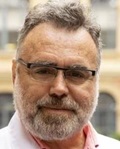 Bipolar disorders are one of the most difficult to diagnose and treat psychiatric conditions. Recent progress has focused on the genetics, neurobiology, and management of this condition. This talk will provide a crisp update of recent advances in the management of bipolar disorders.
Bipolar disorders are one of the most difficult to diagnose and treat psychiatric conditions. Recent progress has focused on the genetics, neurobiology, and management of this condition. This talk will provide a crisp update of recent advances in the management of bipolar disorders.
Eduard Vieta is one of the foremost experts in bipolar disorder, with over 900 articles, 450 book chapters and 43 books on the topic. He is full professor of psychiatry at the University of Barcelona and head of the department of psychiatry and psychology at the Hospital Clinic. He has been neuroscience advisor for the European Union Presidency, invited professor at Harvard University, and honorary doctor by the University of Valencia. He is the most cited scientist worldwide in the field of bipolar disorder and has been named one of the “world’s most influential minds” by Clarivate Analytics. He has received many awards, including the World’s best researcher in biological psychiatry by the World Federation of Societies of Biological Psychiatry, the Colvin Prize, the Simon Bolivar Award, and the Trueta Award. This year he won the Distinction of the Faculty of Doctors and the Social Council of the University of Barcelona for excellent activities of scientific and humanistic dissemination.
Monday 4 December 2023
Clozapine, psychosis and OCD. Where to start?
Emilio Fernandez Egea, United Kingdom
 Obsessive-compulsive symptoms (OCS) and disorder (OCD) are commonly seen in schizophrenia, especially in those treated with clozapine, a phenomenon yet to be understood. I will review the epidemiology and the pathophysiological hypothesis and elaborate a conceptual framework integrating the most recent findings to, finally, propose a treatment algorithm.
Obsessive-compulsive symptoms (OCS) and disorder (OCD) are commonly seen in schizophrenia, especially in those treated with clozapine, a phenomenon yet to be understood. I will review the epidemiology and the pathophysiological hypothesis and elaborate a conceptual framework integrating the most recent findings to, finally, propose a treatment algorithm.
Emilio Fernandez Egea is a consultant psychiatrist at the Cambridgeshire and Peterborough NHS Foundation Trust and an affiliated associate professor at the University of Cambridge. His focus lies in schizophrenia and psychosis, leading the Cambridge Psychosis Centre. With over 120 original research papers, he is researching comorbidities' impact on schizophrenia and the concept of schizophrenia. His work extends beyond research, including deputy editorship at the British Journal of psychiatry and the Spanish Journal of psychiatry and mental health.
Monday 6 November 2023
Current hot topics in the treatment of schizophrenia
Stefan Leucht, Germany
 In the lecture the speaker will address questions such as the efficacy and safety profiles of available antipsychotics, dosing in acute and relapse prevention, effective psychotherapies and shared decision making.
In the lecture the speaker will address questions such as the efficacy and safety profiles of available antipsychotics, dosing in acute and relapse prevention, effective psychotherapies and shared decision making.
Doctor Leucht studied medicine in Munich, Germany, and has worked at the Department of Psychiatry and Psychotherapy, School of Medicine, Technical University of Munich, Germany, since 1994. The overarching theme of Dr. Leucht's research is evidence-based medicine in psychiatry with a focus on systematic reviews.
Monday 2 October 2023
Psycho-endocrinology — will there be a place for it in clinical practice?
Birit Broekman, The Netherlands

Birit Broekman is Professor in Hospital Psychiatry. Her clinical and research focus are related to the interconnection of psyche, soma and context. She finished a master in both Psychology (RUG) and Medicine (UvA), and after her training in Psychiatry (AMC), she worked for almost 10 years in Singapore (NUS), where she led her own research group. She completed her PhD (UvA) based on data from the Netherlands as well as Singapore in perinatal mental health, and as a Veni Laureate she developed further expertise in the relation between sex hormones, mood and sleep. She is currently involved in different research projects with the aim to improve integrated care for patients with mental and somatic health issues.
Monday 5 June 2023
The exposome paradigm to understand the environmental origins of mental disorders
Sinan Guloksuz
 Sinan Guloksuz, MD, PhD is an associate professor of psychiatry at the department of psychiatry and neuropsychology, School for Mental Health and Neuroscience, Maastricht University, and the epartment of psychiatry, Specialized Treatment Early in Psychosis (STEP) Program, Yale University School of Medicine. With a background in clinical psychiatry and epidemiology, Guloksuz’s main research focus has been on understanding the mechanisms underlying mental health outcomes and investigating the contribution of exposome and genome to multidimensional phenotypes in the general population cohorts and large case-control samples. The second body of his work has been in the areas of clinical trials and service research for psychosis spectrum disorder. His work has resulted in over 120 peer-reviewed publications, 12 book chapters, and awarded with international prizes. He has ongoing active roles in professional organisations, such as the Schizophrenia International Research Society and currently serves as the associate editor of the npj Mental Health Research and the editorial board member of the British Journal of Psychiatry and the PLOS One.
Sinan Guloksuz, MD, PhD is an associate professor of psychiatry at the department of psychiatry and neuropsychology, School for Mental Health and Neuroscience, Maastricht University, and the epartment of psychiatry, Specialized Treatment Early in Psychosis (STEP) Program, Yale University School of Medicine. With a background in clinical psychiatry and epidemiology, Guloksuz’s main research focus has been on understanding the mechanisms underlying mental health outcomes and investigating the contribution of exposome and genome to multidimensional phenotypes in the general population cohorts and large case-control samples. The second body of his work has been in the areas of clinical trials and service research for psychosis spectrum disorder. His work has resulted in over 120 peer-reviewed publications, 12 book chapters, and awarded with international prizes. He has ongoing active roles in professional organisations, such as the Schizophrenia International Research Society and currently serves as the associate editor of the npj Mental Health Research and the editorial board member of the British Journal of Psychiatry and the PLOS One.
Monday 3 April 2023
Can we re-medicalise the psychedelic experience?
Guy Goodwin
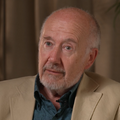
Guy Goodwin, FMedSci is chief medical officer for Compass Pathways, working to re-medicalise the psychedelic experience for use in psychiatry. He is emeritus professor of psychiatry and NIHR emeritus senior investigator at the University of Oxford, United Kingdom. His research interests are the treatment of mood disorder and the potential to improve treatment using new drugs and new technology. He is a fellow of the American College of Neuropsychopharmacology, has previously held the position of President of the British Association for Psychopharmacology and the European College of Neuropsychopharmacology (ECNP) and is a senior investigator on the faculty of UK National Institute for Health Research (NIHR).
Our understanding of how the psychedelic experience emerges from brain activity is an area of intense interest and contemporary research. COMP 001 was the first large, multinational, randomised controlled trial to evaluate psilocybin in patients with TRD1. On the primary efficacy measure, large dose-dependent reductions from baseline in Montgomery-Asberg Depression Rating Scale (MADRS) scores were evident starting from day 2. The mechanisms underlying this change are of great potential interest.
1) Goodwin, G. M., Aaronson, S. T., Alvarez, O., Arden, P. C., Baker, A., Bennett, J. C., … & Malievskaia, E. (2022). Single-dose psilocybin for a treatment-resistant episode of major depression. New England Journal of Medicine, 387(18), 1637-1648.
Monday 6 March 2023
Protecting the physical health of people with severe illness – what I have learned from being a carer over the last 25 years
David Shiers
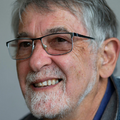 David Shiers is an honorary reader in early psychosis at Manchester University. In a previous life David had been a GP in Leek, North Staffordshire. His interest in mental health arose from personal involvement as a carer from the mid-90s. Derived from what he felt was lacking in his daughter’s early experiences of care, David jointly led with professor Jo Smith the UK’s National Early Intervention in Psychosis Programme (2004-10). Now retired, David continues to challenge why people like his daughter should accept poor physical health, participating in relevant NICE guidance and quality standards, and as a clinical adviser to National Clinical Audits of Schizophrenia/Psychosis (2011-2018). In 2014, with Dr Jackie Curtis, David supported the launch of Healthy Active Lives, an international consensus on intervening early to protect people’s bodies as well as their minds (iphYs). Most recently David has been involved in another consensus statement, The Right To Smile, drawing attention to the neglected health inequality of poor oral health (The Right To Smile). David began his current academic appointment in 2015, something he never anticipated, 41 years after qualifying to be a doctor in Manchester, and particularly as his only previous research experience was conducted in his veg plot collaborating with his young grandsons on ways to grow giant pumpkins.
David Shiers is an honorary reader in early psychosis at Manchester University. In a previous life David had been a GP in Leek, North Staffordshire. His interest in mental health arose from personal involvement as a carer from the mid-90s. Derived from what he felt was lacking in his daughter’s early experiences of care, David jointly led with professor Jo Smith the UK’s National Early Intervention in Psychosis Programme (2004-10). Now retired, David continues to challenge why people like his daughter should accept poor physical health, participating in relevant NICE guidance and quality standards, and as a clinical adviser to National Clinical Audits of Schizophrenia/Psychosis (2011-2018). In 2014, with Dr Jackie Curtis, David supported the launch of Healthy Active Lives, an international consensus on intervening early to protect people’s bodies as well as their minds (iphYs). Most recently David has been involved in another consensus statement, The Right To Smile, drawing attention to the neglected health inequality of poor oral health (The Right To Smile). David began his current academic appointment in 2015, something he never anticipated, 41 years after qualifying to be a doctor in Manchester, and particularly as his only previous research experience was conducted in his veg plot collaborating with his young grandsons on ways to grow giant pumpkins.
During this session, David and Jurjen will have a conversation about how David’s experiences as a carer have shaped his interests, brought him in contact with the world of mental health research and how valuable carers may be for the wellbeing of patients with mental illness.
Monday 6 February 2023
Assessing decisional capacity in psychiatric patients
Paul Appelbaum
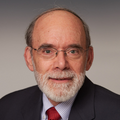
Paul S. Appelbaum, M.D., is Professor of Psychiatry and director of the Division of Psychiatry, Law, and Ethics in the Department of Psychiatry at the College of Physicians and Surgeons of Columbia University. He directs Columbia’s Center for Research on Ethical, Legal, & Social Implications of Psychiatric, Neurologic, & Behavioral Genetics (NHGRI). As author of many articles and books on law and ethics in clinical practice and research, much of his more recent research has focused on the ethical and psychosocial impact of advances in genetics. Dr Appelbaum is a Past President of the American Psychiatric Association and the American Academy of Psychiatry and the Law, and now chairs the APA’s DSM Steering Committee. He also is a member (and former chair) of the Standing Committee on Ethics of the World Psychiatric Association. He has been elected to the National Academy of Medicine. Dr Appelbaum is a graduate of Columbia College, received his M.D. from Harvard Medical School, and completed his psychiatry residency at the Massachusetts Mental Health Center/Harvard Medical School.
Monday 5 December 2022
Translational neuromodeling, computational psychiatry and computational psychosomatics
Klaas Enno Stephan

Klaas Enno Stephan is a computational neuroscientist and medical doctor. He currently serves as professor for translational neuromodeling and computational psychiatry at the University of Zurich and ETH Zurich. His work concerns the development of clinically useful computational assays for psychiatry and psychosomatic medicine, with a current focus on brain-body interactions in fatigue and depression. In order to enable the clinical validation of his work, Klaas founded the Translational Neuromodeling Unit (TNU) at Zurich. The TNU assembles computational scientists and clinicians under one roof in order to evaluate the diagnostic and prognostic utility of computational assays in prospective patient studies.
Monday 7 November 2022
Postpartum psychosis and bipolar disorder: two different disorders or the same?
Arianna di Florio
 Arianna is a researcher and clinical psychiatrist. Psychiatric disorders associated with changes in female sex hormones, such as those associated with the menstrual cycle, childbirth and transition to menopause, are a major public health issue and represent a unique opportunity to study the complex interplay between gender, sex and mental states. In her role at Cardiff University, she set up the Reproductive Neuroscience Clinical and Research Programme to study how genetic and environmental markers can help identify women at risk of psychiatric disorders in relation to changes in sex hormones and improve the current approach to diagnosis, prevention and treatment. The programme includes the European Research Council funded project ‘Genetic Architecture Of Sex Steroid-related Psychiatric Disorders’ (GASSP), the first molecular genetic study of the psychiatric sensitivity to sex hormone changes. At the MRC Centre for Neuropsychiatric Genetics and Genomics at Cardiff University she leads the bipolar disorder genomics research group. Together with the Bipolar Disorder Research Network, the centre has collected the largest cohort of people with bipolar disorder in the world and has made important contributions to the understanding of the genetic susceptibility underpinning the disorder.
Arianna is a researcher and clinical psychiatrist. Psychiatric disorders associated with changes in female sex hormones, such as those associated with the menstrual cycle, childbirth and transition to menopause, are a major public health issue and represent a unique opportunity to study the complex interplay between gender, sex and mental states. In her role at Cardiff University, she set up the Reproductive Neuroscience Clinical and Research Programme to study how genetic and environmental markers can help identify women at risk of psychiatric disorders in relation to changes in sex hormones and improve the current approach to diagnosis, prevention and treatment. The programme includes the European Research Council funded project ‘Genetic Architecture Of Sex Steroid-related Psychiatric Disorders’ (GASSP), the first molecular genetic study of the psychiatric sensitivity to sex hormone changes. At the MRC Centre for Neuropsychiatric Genetics and Genomics at Cardiff University she leads the bipolar disorder genomics research group. Together with the Bipolar Disorder Research Network, the centre has collected the largest cohort of people with bipolar disorder in the world and has made important contributions to the understanding of the genetic susceptibility underpinning the disorder.
Monday 3 October 2022
Treatment resistant psychosis: is evidence-based medicine failing?
James MacCabe
 After an intercalated BSc in Psychology and basic medical sciences, professor MacCabe qualified in medicine at the University of London in 1995 and completed his basic and higher specialist training in Psychiatry at the Maudsley Hospital from 1997 to 2004. He obtained a joint MRC/Department of Health Special Training Fellowship in Health of the population research in 2004, in collaboration with the Department of Medical Epidemiology and Biostatistics at Karolinska Institute, Stockholm. He obtained an MSc in epidemiology from the London School of Hygiene and Tropical Medicine in 2006 and a PhD in 2008. In 2009 he was awarded a clinical senior lectureship by the Higher Education Funding Council for England. He was awarded a personal chair as Professor of Epidemiology and Therapeutics at King’s College London in 2019.
After an intercalated BSc in Psychology and basic medical sciences, professor MacCabe qualified in medicine at the University of London in 1995 and completed his basic and higher specialist training in Psychiatry at the Maudsley Hospital from 1997 to 2004. He obtained a joint MRC/Department of Health Special Training Fellowship in Health of the population research in 2004, in collaboration with the Department of Medical Epidemiology and Biostatistics at Karolinska Institute, Stockholm. He obtained an MSc in epidemiology from the London School of Hygiene and Tropical Medicine in 2006 and a PhD in 2008. In 2009 he was awarded a clinical senior lectureship by the Higher Education Funding Council for England. He was awarded a personal chair as Professor of Epidemiology and Therapeutics at King’s College London in 2019.
Professor MacCabe has been honorary consultant psychiatrist at the National Psychosis Unit since 2005, where he is responsible for treating inpatients with severe psychosis and conducting clinical trials. Prof MacCabe serves on the Board of Trustees of the mental health charity, SANE. His research in treatment refractory schizophrenia personalised medicine mirrors his clinical work, and is geared towards helping people whose psychosis has not responded to standard antipsychotic treatment. It includes work on the epidemiology, genetics and neurochemistry underlying treatment refractory schizophrenia, and identifying biomarkers that may be used in personalised medicine. Much of his research is conducted in collaboration with UK and international partners.
Monday 5 September 2022
Real-world evidence on antipsychotic doses for schizophrenia
Heidi Taipale
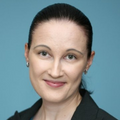
Heidi Taipale is a senior researcher at Karolinska Institute, Stockholm, Sweden, working in the field of psychiatric epidemiology. She is an Academy Research Fellow at Niuvanniemi Hospital, Kuopio, Finland, working in research on the effectiveness of pharmacotherapy for schizophrenia.
She has a title of docent in pharmacoepidemiology and is a Doctor of Science in pharmacy. Her areas of interest and work include the real-world effectiveness of pharmacotherapies in psychiatric disorders, adverse outcomes associated with pharmacotherapies, and register-based psychiatric epidemiology. She has strong focus on developing new and improved methods for register-based research, especially for deriving estimates of medication use from large datasets. She has published more than 160 original works and has over 4000 recorded citations listed in the Google Scholar.
Monday 4 July 2022
What’s new in psychopharmacology in 2022
Christoph Correll
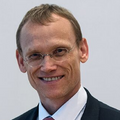
Christoph U. Correll is professor of Psychiatry at The Zucker School of Medicine at Hofstra/Northwell, New York, USA, and also professor and chair of the Department of Child and Adolescent Psychiatry, Charité University Medicine, Berlin, Germany. He completed his medical studies at the Free University of Berlin in Germany, and Dundee University Medical School in Scotland. He is board certified in general psychiatry and child and adolescent psychiatry, having completed both residencies at The Zucker Hillside Hospital in New York City. Since 1997, he has been working and conducting research in New York, USA, and since 2017 he is also working in Germany again. Professor Correll focuses on the identification and treatment of youth and adults with severe mental illness, clinical trials, epidemiology, psychopharmacology, meta-analyses, and the interface between physical health and mental health. He has authored or co-authored over 700 journal articles that have been cited more than 49.000 times and received over 40 research awards for his work. Since 2014, the beginning of this metric, he has been listed every year by Clarivate/Web of Science as one of the ‘most influential scientific minds’ and ‘top 1% cited scientists in the area of psychiatry’.
Monday 4 April 2022
Understanding the landscape of shared genetic determinants of mental disorders: where will this bring psychiatrists and researchers?
Olav Smeland
 Olav B. Smeland is a medical doctor from Norway with a PhD in neuroscience. He works as a psychiatrist at Oslo University Hospital and is a researcher at the Norwegian Centre for Mental Disorders Research (NORMENT). His main area of research interest is uncovering the genetic risk architecture of severe mental disorders such as schizophrenia and bipolar disorder. In particular he focuses on investigating the shared genetic risk between mental disorders and related traits and diseases.
Olav B. Smeland is a medical doctor from Norway with a PhD in neuroscience. He works as a psychiatrist at Oslo University Hospital and is a researcher at the Norwegian Centre for Mental Disorders Research (NORMENT). His main area of research interest is uncovering the genetic risk architecture of severe mental disorders such as schizophrenia and bipolar disorder. In particular he focuses on investigating the shared genetic risk between mental disorders and related traits and diseases.
Monday 7 March 2022
Antipsychotic efficacy in the real world
Markku Lähteenvuo
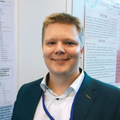
Markku Lähteenvuo currently works as a chief of forensic psychiatry at Niuvanniemi hospital, the largest state operated forensic psychiatric hospital in Finland. In addition to his clinical work, he has authored several publications on the real-world effectiveness of psychopharmacological therapies for depression, bipolar disorder and schizophrenia. He is also involved in projects related to the genetics of psychiatric disorders and treatment response.
Monday 7 February 2022
Computational psychiatry: can computers outperform psychiatrists?
Quentin Huys

Quentin Huys is a clinician and associate professor of computational psychiatry at the Department of Psychiatry, Max Planck UCL Centre and computational psychiatry and ageing research at University College London. His research interests are computational psychiatry, with particular focus on developing computational tools to improve patient outcomes in depression and addictive disorders; complex decision-making and learning, and computational models of emotion.